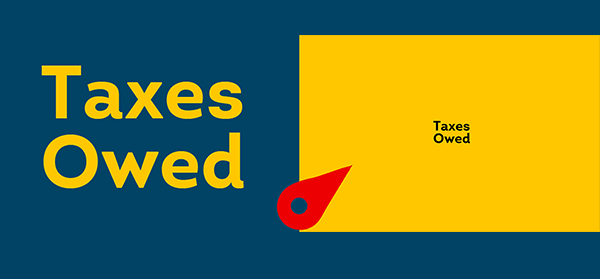Disclosure: This content, except as otherwise indicated or stated on this site, is the property of TransUnion Rental Screening Solutions, Inc. This content is for educational purposes and for convenience only. Trademarks used are the property of their respective owners, and no endorsement or affiliation is implied. The information presented in this content is “as is” without warranties of any kind, and specifically is not represented to be complete and does not constitute legal advice, and is subject to change without notice. You are encouraged to check these terms from time to time for changes, and by accessing this site you agree to these terms and all terms listed. Laws and regulations may vary by state and locality. Consult your own counsel if you have legal questions related to your rental property practices and processes.
Most landlords know that finding good tenants is the key to a successful rental venture. You put the necessary time and effort into a tenant screening process to ensure the best possible results, so it can be understandably nerve-wracking when your tenant suggests moving a subtenant in.
Should you allow your tenant to sublease? In order to help you answer that question, we discuss what subletting is, how a sublease works, and the pros and cons of allowing your tenant to sublease.

How Does A Sublease Work?
UrbanEdge defines a sublet as a rental situation where a third party subleases property from the original leaseholder. A tenant may have the opportunity to travel or need to move to another city for work. Rather than break a lease and pay expensive fees or risk not having an apartment when they return, they may opt to create a sublease. Nolo states that a subtenant has no direct relationship with the landlord. Generally, the tenant who signed the original lease is still responsible for payment of rent and the condition of the property.
Sublease vs Lease Assignment
According to U.S. News, a sublease or sublet is an agreement between a tenant and another person, called the subtenant, to temporarily occupy a rental without entering into a contract with the landlord.
Lease Assignment
Alternatively, if a tenant wishes to move out early, you can consider a lease assignment agreement. According to SFGate, a lease assignment is a formal agreement transferring a tenant’s rights and obligations to a new tenant. The benefit to landlords is that you are generally brought into the picture to meet the new tenant and to perform your usual tenant screening procedures.

The Pros and Cons of Subletting
Pro: A steady stream of income
Subletting can be a great way to maintain a steady income stream. An apartment sitting vacant can quickly dent your rental income, so it may be worthwhile to consider a sublet if the tenant is planning to vacate. If the tenant is only planning to move away for a temporary period of time, subletting enables you to maintain a steady rental income while also keeping your agreement with the original renter (a pro if they’re reliable). Even if your current tenant is planning to permanently move out, a sublease can buy you time to advertise, search for and thoroughly screen a new tenant while continuing to generate income.
Con: The risk factor
According to Sapling, the primary tenant is responsible for rent payments and damages, but chasing down money from a tenant that is in another city or country may not be on your agenda. You’ll also have to consider the risk factors of renting to someone unknown. If the subtenant is noisy or destructive, subletting could harm your reputation as a landlord and cost you money. ApartmentRatings points out that without a background check, you could end up subletting to someone with a relevant criminal record.
Pro: You don’t have to turn over the property
Cleaning, advertising, and preparing a unit to turnover can be time-consuming. If a tenant already has someone else lined up to take over their lease, it might seem like an easy solution to finding a new renter. If the subtenant has recently moved to the city and is subleasing while they search for a more permanent place, you may already have found your next tenant without having to put time and money into preparing your unit for rent.
Con: You may not get a high-quality tenant
On the other hand, you may not agree with your tenant’s choice. After all, the tenant is more likely concerned with avoiding the fees associated with breaking a lease. They might be less likely to be vigilant about finding a tenant who meets your high screening standards.

How to Protect Yourself During a Sublease
One of the best things you can do to protect your unit and your rental income during a sublease is to fully screen the subtenant beforehand. Check their credit history, tenant criminal background record, and eviction history to get a better idea of their risk as a tenant. Ideally, you should have the ability to approve or disapprove the subtenant before they move in. You’ll also want to consider making adjustments to your lease agreement so your tenant understands exactly what their responsibilities are in a sublease situation.
Additionally, you will want to be sure that the subtenant is able to afford the rent. While you should always request a current paystub and speak with the tenants employer, landlords can also utilize a tool like Income Insights to analyze their prospective tenant’s income -- which may not only help determine whether or not they can afford the rent, but if they will pay rent in a timely manner.
Conclusion
Ultimately, the decision whether or not to approve a sublet lies in your hands, but it’s always a good idea to screen a subtenant just as you would any other tenant. SmartMove tenant screening can provide you with the peace of mind that comes with getting the full picture on a tenant. It also assures renters (both permanent and temporary) that only TransUnion, and not their landlord, will have access to their sensitive personal information.
TransUnion SmartMove is the landlord’s solution for great reports, great convenience, and great tenants. Landlords receive a credit report formatted exclusively for rental screening, a criminal report drawing from millions of criminal records, an eviction report, Income Insights report a ResidentScore.
Know your applicant.
Additional Disclosure:
The information posted to this blog was accurate at the time it was initially published. We do not continue to guarantee the accuracy or completeness of the information provided. The information contained in the TransUnion Rental Screening Services, Inc. blog is provided for educational purposes only and does not constitute legal or financial advice. You should consult your own attorney or financial adviser regarding your particular situation. For complete details of any product mentioned, visit www.transunion.com. This site is governed by the TransUnion Rental Screening Privacy Policy Privacy Notice located at TransUnion Rental Screening Solutions, Inc. Privacy Notice | TransUnion.






